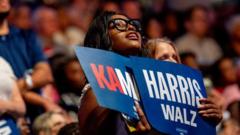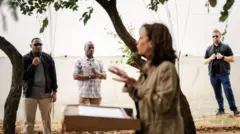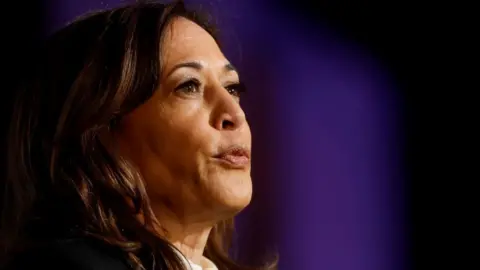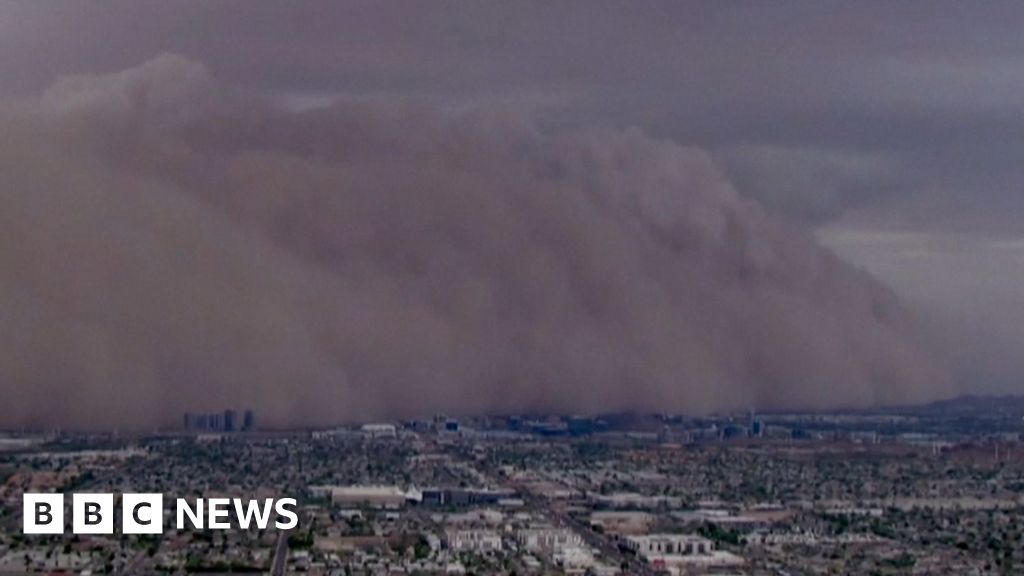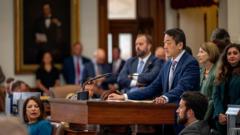In battleground states such as Michigan and Arizona, a surge of young women is stepping up to vote early for Vice President Kamala Harris, who is relying on them to change the tide in her favor for the upcoming 2024 election. On a notably warm fall day, students lined up outside the early voting center on the University of Michigan’s Ann Arbor campus, displaying palpable enthusiasm for Harris. One student, third-year Keely Ganong, expressed her admiration, stating, “She’s just a leader that I would look up to to represent my country."
Friend Lola Nordlinger echoed her sentiments, emphasizing the importance of gender equality and reproductive rights, stating, "A woman’s choice is something that’s so personal to her," highlighting that these issues resonate deeply among young voters. With less than a week until ballots are cast, Ganong noted, “Everyone on campus is talking about voting” and believes student voices will significantly impact the election outcome.
The demographic bears the hallmark of typical Harris supporters; recent polling by the Harvard Institute of Politics reveals an impressive 30-point lead for Harris among women aged 18-29. Even more striking, a survey from Inside Higher Ed/Generation Lab indicates a staggering 38-point lead among college students.
Hannah Brocks, a 20-year-old student engaged with the young Democrats club, expressed her commitment to rallying support for Harris, stating, “I just like the way she talks about people in general,” underscoring the love and empathy she perceives in Harris's communication style. Polls show the race is tight, and Harris is counting on these younger women to turn out in large numbers to secure victory.
However, the dynamics of the election are far from simple. Although Harris leads among young women, she faces challenges with older demographics and white women, a historically significant group that has leaned towards Republican candidates. Analysts and pollsters advise that for Harris to succeed, she will need to convert undecided or fence-sitting voters as well as ensuring her base turns out.
In Arizona, the stakes are heightened with a proposed ballot question aiming to enshrine abortion rights into the state constitution. Activists like Mary Jelkovsky see this as an opportunity to galvanize women voters. She shared her concerns about the implications of the recent Supreme Court ruling to overturn Roe v. Wade, recounting conversations with friends and family on personal experiences related to abortion.
The Harris campaign is hopeful that the abortion rights issue will not only invigorate Democratic voters but also sway some Republican women. Rebecca Gau, a former Republican voter, remarked that she felt represented by Harris and was eager to vote for her, citing a growing exhaustion with "toxic masculinity" in politics.
Conversely, some women remain steadfast in their Republican values. Voter panelist Tracey Sorrel expressed skepticism around Harris's stance on abortion, indicating that she would continue to support Trump despite her feelings about individual character.
As the election approaches, the focus remains on how effectively Harris can mobilize these young women and their allies to secure vital votes in this divided political landscape.

